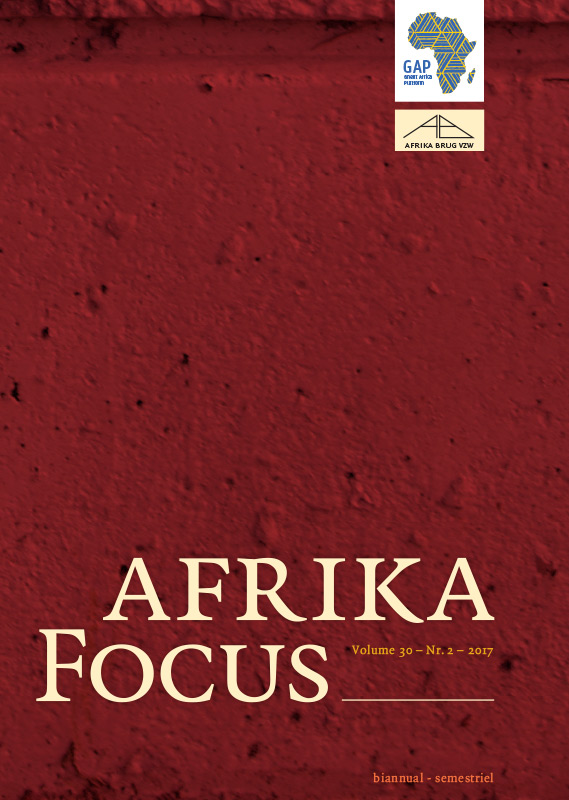How the West has ‘civilized’ the Congo according to Evariste Pini-Pini. Or: how the past burdens and feeds the future. Euariste Pini-Pini Nsasay Editions AfricAvenir/Exchange & Dialogue, Douala-Berlin-Wien, 2013
DOI:
https://doi.org/10.21825/af.v30i2.8100Abstract
The first book by Evariste (Kentey) Pini-Pini (°1955, Congo DRC) deals with the nature and the effects of the European domination in the Kongo Kingdom dating back to the end of the 15th century (“Kongo-Dyna-Nza”), the second wave of colonisation in the 19th and 20th centuries in the larger Congo territory (“Congo-prison”) and the post(neo)colonial period until the present day (“Congo-enfer”). The author gives special attention to the resistance of the Congolese people to this domination and he makes a strong plea for a “renouveau” of the “Nsi Kongo, espace de vie et de liberté”. Pini-Pini touches on a huge number of topics and evokes just as many questions about the past, present and future of the DRC Congo; about the clash and the possibility of reconciliation between the fundamental characteristics of 'the West' and 'Africa'; about the specfic role of religious actors within that relation; about the position of African immigrants in our Western/ Belgian society. The book, along with the work of a large part of the Congolese intelligentsia, does apparently not get the attention it should in Dutch-speaking Belgium. And while objections can be raised to the book, it deserves to be read and reviewed in order to stimulate the dialogue with authors such as Pini-Pini. Thus it may pave the way to the much broader dialogue, strongly asked for and desired, between ‘the West' and 'Black Africa' or, in a larger sense still, the 'Monde Noir'. Key words: Congo DRC, Kongo, colonialism, resistance, tradition, dialogueDownloads
Published
How to Cite
Issue
Section
License
Copyright (c) 2017 William Blondeel

This work is licensed under a Creative Commons Attribution 4.0 International License.
Authors who publish with this journal agree to the following terms
Authors retain copyright and grant the journal right of first publication with the work simultaneously licensed under a Creative Commons Attribution License that allows others to share the work with an acknowledgement of the work's authorship and initial publication in this journal.
Authors are able to enter into separate, additional contractual arrangements for the non-exclusive distribution of the journal's published version of the work (e.g., post it to an institutional repository or publish it in a book), with an acknowledgement of its initial publication in this journal.
Authors are permitted and encouraged to post their work online (e.g., in institutional repositories or on their website) prior to and during the submission process, as it can lead to productive exchanges, as well as earlier and greater citation of published work (See The Effect of Open Access).


